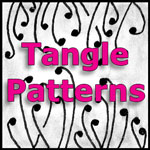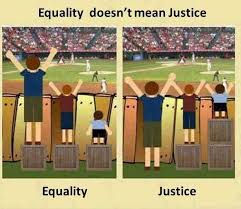For those who don’t know, the term “hidden curriculum” refers to the things in everyday social life that are hard for people on the autism spectrum to pick up that others just do unconsciously. From the perspective of a person with autism, these things are “hidden” because they simply don’t see them. It’s not out of willfullness or stubborness, they are social cues that are too subtle for them to read.
While I’m not on the spectrum, I feel like I have had a full run-in with the “hidden curriculum” of social media lately. I’m a casual user of Facebook. I don’t know the ins and out of it. I don’t “poke” people. When I share posts I credit the people I shared them from, because in my mind, that’s the proper thing you do. You give credit to the people you’ve borrowed something from. I remember enough from Pinterest a couple of years ago to know people were up in arms about not giving credit there.
I don’t know how “tagging” works. But, apparently it’s a pretty darn big deal. Enough so that it warrants warnings like this from people: “I have to say this far too often: don’t tag me in any post not specifically related to me and don’t add me to groups. Both acts earn an unfriend and block.” Now, “not specifically related to me,” that seems perfectly fair. And adding to groups? That would be downright rude. “Both acts earn an unfriend and a block.” Wow. That’s wielding power in the Facebook world.
Maybe it wouldn’t have been such a big deal if another author hadn’t PM’d me personally. “Could you please stop tagging me when you share something I’ve liked? If I wanted to share it on my timeline, I would, and tagging makes it show up there anyway unless I go in and manually untag myself.” Now, again, that’s not an unreasonable request–except I had no idea I was “tagging” anyone. I have no idea how that works. But then it comes to the almighty timeline. I replied that I didn’t know how that worked, apologized, said I just wanted to give credit. Now, she was nice about it, but then there’s just that little bit of ambiguity where 70%+ of language is non-verbal so you’re really not sure what the tone is. “FB can be SOOO confusing about what it does sometimes. It ought to come with instructions!” Now, does that mean it does come with instructions and I should have read them? Or that it really is confusing and it should be easier to figure out?
I take things I shouldn’t too personally sometimes, but between that and the other post, my first reaction was just anger. The people I consider my FB friends are mostly authors, and a very nice group of them. But things like this start to show a difference in the fan/author chasm which isn’t usually so wide. In my experience, none of the authors generally act superior or more important than the fans. After all, we buy the books that support them. I consider it, generally, a really nice group of people. But I’m not in the position where I’m posting things that are being reposted. I’m not the popular one. I’m just the fan. No one would care if I posted statements about tagging and unfriending, because I’m just a fan, not an author. So who cares if I unfriend and block someone?
So there is an unequality, a “hidden curriculum.” I’m not as important, even though that isn’t mentioned. Now, I certainly do not mean this to all the authors I know online, but when it really comes down to it, it’s true. Isn’t it? I don’t even know. I just know that when a timeline is more important than a real human being, I think some priorities have gotten a bit askew. And it hurts me to say that. Because it’s blown a hole in my idealized little online Facebook world.
In the meantime, I’m not going to repost anything from individuals, only the organizational group pages. Or my friends. Because gods know I don’t know what I’m doing, and gods forbid I accidentally tag someone. I think The Republican War on Women is not just going to block me and throw away the key on me. I’ve been blocked, without having a chance to explain myself, and it hurts. I have blocked people. People who have bullied me IRL. Not because they tagged me. Put things in perspective, maybe? Or maybe it’s just a hidden curriculum that will continue on. I’m sure there are people who do things deliberately, but then again, there are people like me who do things accidentally because they don’t know what they’re doing. But, off with their heads.
It’s really made me take a closer look at the niche I felt comfortable in, and I realize I don’t feel as comfortable anymore.



















You must be logged in to post a comment.